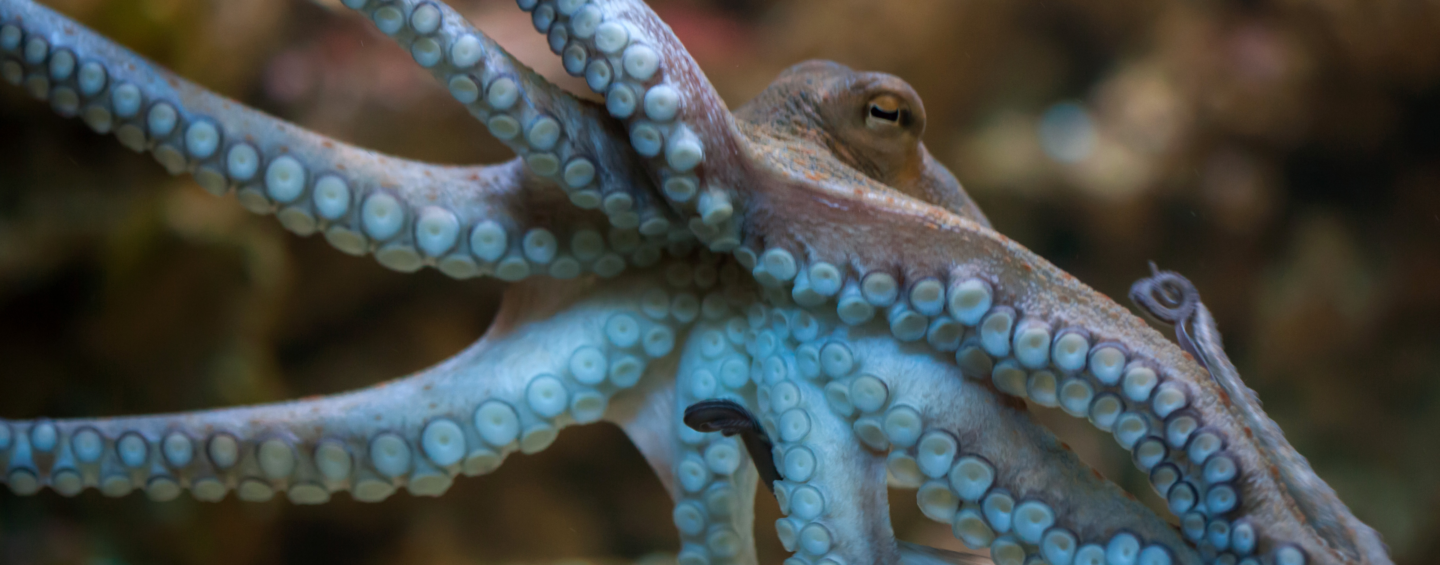I was excited to see the news last month that the world’s first octopus fishery has been certified sustainable by the Marine Stewardship Council (MSC), and that this fishery is right here in Spain.
SFP has been committed to improving octopus fisheries, so this news serves as a welcome sign that fishery improvement projects (FIPs) and MSC certification can apply even to less mainstream species such as octopus.
Four Asturian fishing guilds – Nuestra Señora de la Atalaya de Puerto de Vega, Nuestra Señora de la Caridad de Ortiguera, Santo Ángel de la Guarda de Viavélez, and San Pedro de Tapia de Casariego – are holding the certificate. The fleet is small, made up of 27 boats based in the Navia-Porcía region of western Asturias, and employs only artisanal fishers.
The MSC announcement quoted Adolfo García Méndez, President of the Fishermen Association of Nuestra Señora de la Atalaya, Puerto de la Vega, and a representative for the guilds, as saying: “It’s been more than a year of hard work from all of us artisanal fishers from the West Asturias region. We are committed to protecting our ocean because we know that the future of our coastal communities and the sustainability of the environment depend on it.”
The only thing that might have made the guilds’ fishery certification more of a success is if the fishery had been involved in a FIP prior to the certification. Among other benefits, the fishery might have received more public recognition for the hard work Méndez mentioned.
The MSC has not paid much attention to octopus in the past, but the organization clearly expects more fisheries to follow the guilds’ example. According to Laura Rodríguez, MSC’s Spain and Portugal country manager, “One of the priorities for the MSC in Spain and Portugal is to encourage more local fisheries to join the program, in order to expand our offer of locally sourced, certified sustainable seafood.”
I couldn’t agree more. The guilds’ fishery only produces 30 to 60 tonnes of octopus a year. Once word got out of the MSC certification, the fishery was buried in demand from international markets for certified octopus (something, I might add, that a FIP could have helped the fishery prepare for). Retailers and suppliers from the UK, Switzerland, and the US have already reached out to the guilds asking about their product, and there is no possibility the fishery alone will cover such a demand. This has already had an impact on price, since buyers and processors that clean, gut, and freeze the octopus are trying to position themselves as the principal sellers for this new market opportunity.
However, I’m hoping this demand will mobilize other neighboring fishermen’s associations from the Asturias region operating within the same stock to join the certification (also made easier via involvement in FIPs). Ideally, this achievement will influence the artisanal regional fishery from neighboring Galicia also to take the road to sustainability. That fishery is much larger – it produces yearly volumes of Spanish-caught octopus between 3,000 and 5,000 tonnes, large enough to cover the increasing demand.
So there is significant financial motivation for the Galician fishery to get on board, and this is necessary to build on last month’s success. The guilds’ certification was a significant development, but there is more work to be done. Only by getting a large-volume fishery certified, or working through a FIP toward that goal, will we see sustainable octopus covering the national and international demand for this tasty product.
Pedro Ferreiro is based in Spain.

